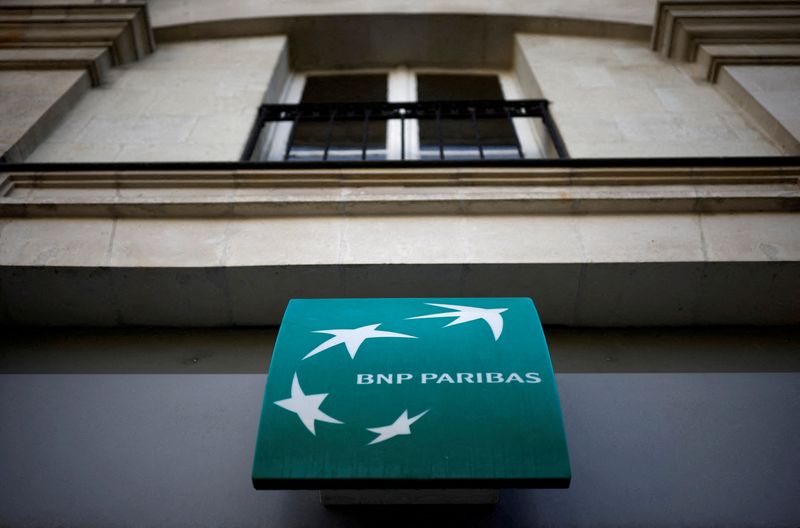

© Reuters. FILE PHOTO: The logo of BNP Paribas bank is pictured on an office building in Nantes, France, March 16, 2023. REUTERS/Stephane Mahe/File Photo
By Huw Jones
LONDON (Reuters) – The European Union’s banking watchdog said on Thursday that millions of euros of capital used by BNP Paribas (EPA:) in its safety buffers were ineligible and must be removed, a step the bank flagged last month that it would take.
The European Banking Authority (EBA) has been cleaning up capital used by lenders in ‘Tier 2’ buffers that supplement core capital, in particular targeting “discos” or perpetual bonds that were issued during the 1980s.
The EBA has said the complexity of discos could hamper how a bank is wound down in a crisis, and must be replaced by a simpler, more readily available form of capital that complies with EU rules.
The need for barrier-free, speedy closures of failing backs to stem contagion and fear spreading in markets was highlighted last year when several U.S. banks collapsed and Switzerland’s Credit Suisse (SIX:) had to be rescued.
“The EBA has advised that the instrument cannot count as fully eligible Tier 2 instrument of BNPP (BNP Paribas),” the watchdog said in a letter to lawyers representing holders of the notes and published on Thursday.
The notes were issued in 1986 and should have been phased out by Dec. 31, 2021, as made clear in the EBA’s “opinion” in October 2020 on legacy instruments, the watchdog added.
Last month, BNP said it would no longer include discos and other subordinated instruments totalling 726 million euros ($794 million) in its regulatory capital from Dec. 31, 2023.
It gave no reason for the decision.
A year ago, the EBA made a similar ruling on discos totalling $565 million held by Norway’s DNB Bank.
“The big part of the job of cleaning up discos is now done, with BNPP the last big one. The rest is more niche,” said Delphine Reymondon, head of liquidity, leverage, loss absorbency and capital at the EBA.
“There is only a tiny amount left as the stock of discos has now shrunk. This shows that issuers take opinions seriously.”





